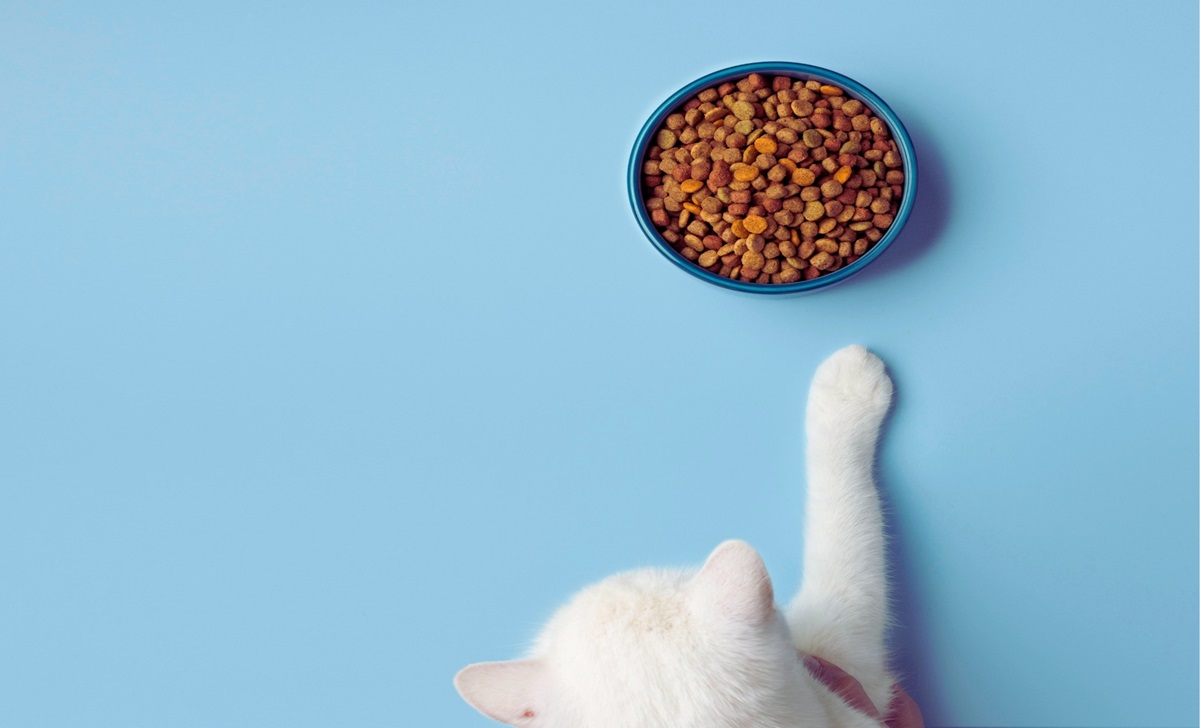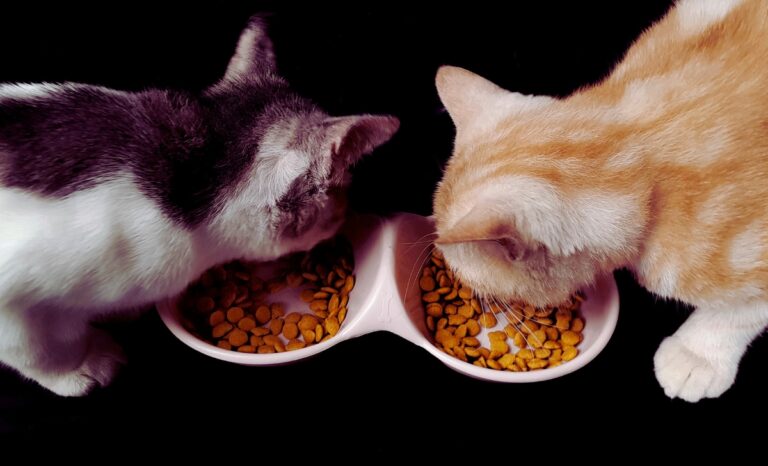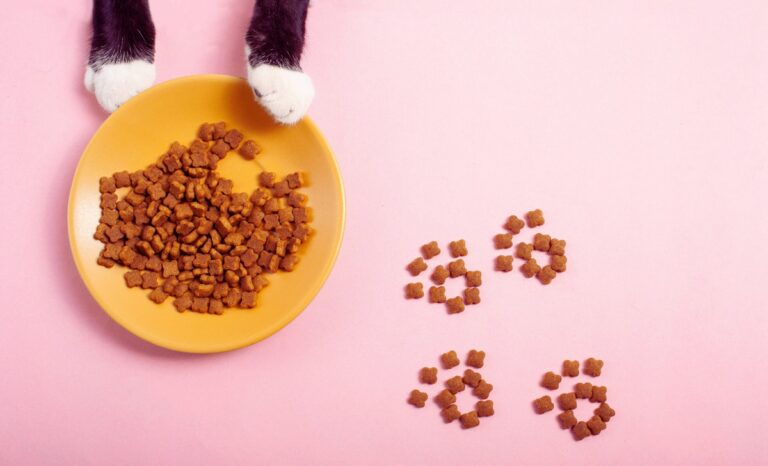When it comes to choosing the best food for your cat, especially for those with specific health concerns, the debate between Hills Prescription Cat Food vs Royal Canin is common among pet owners. Both brands are trusted by veterinarians worldwide, with solid scientific research backing their formulas. Hills Prescription Cat Food is known for its focus on providing targeted nutritional solutions to address conditions like kidney disease, digestive issues, and weight management. On the other hand, Royal Canin Veterinary Diet is recognized for its highly specialized approach, offering food tailored to specific breeds, sensitivities, and health needs.
Table of Contents
ToggleWhile both offer high-quality prescription diets, the choice between Hills Prescription Cat Food vs Royal Canin ultimately depends on your cat’s specific health requirements and your veterinarian’s recommendation.
What is Prescription Cat Food?
Key Features of Prescription Cat Food:
- Tailored Nutrition: Specifically formulated to meet the dietary needs of cats with medical conditions. For example, cats with kidney disease require lower phosphorus and protein levels.
- Veterinary Endorsement: Developed under veterinary supervision and backed by research and clinical trials to ensure safety and effectiveness.
- Symptom Management: Prescription diets can alleviate symptoms, prevent complications, and improve the quality of life for cats with chronic health problems.
- Not for Healthy Cats: These foods are nutritionally imbalanced for cats without the targeted health issues and should only be used under veterinary supervision.
When comparing Hills Prescription Cat Food vs Royal Canin, both brands are excellent choices for managing chronic health issues in cats. Hill’s is known for its scientifically backed formulations and effectiveness in conditions like kidney disease and obesity. Royal Canin offers a wider variety of specialized diets, including options for specific breeds, and is praised for its palatability. Ultimately, the best choice depends on your cat’s health needs and preferences, so it’s always best to consult with a veterinarian for guidance.
Hills Prescription Cat Food
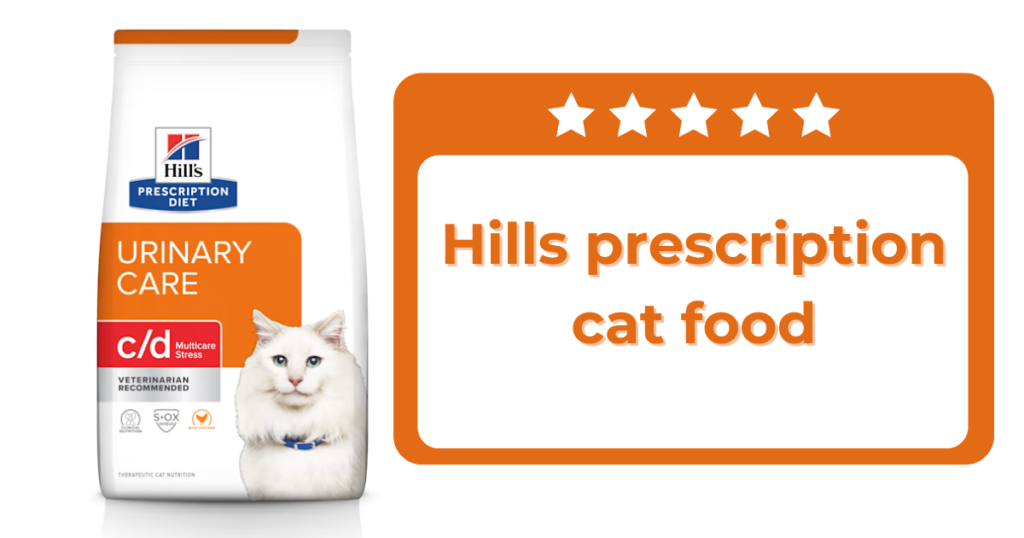
Brand Overview
When comparing Hill’s Prescription Cat Food vs Royal Canin, both brands are known for their focus on feline health, but they each offer something unique. Hill’s Prescription Diet is scientifically designed to address specific health conditions, like kidney disease or digestive issues, with a strong emphasis on measurable results. Royal Canin, on the other hand, offers a range of breed-specific and health-focused diets, catering to a variety of feline needs.
Choosing between Hill’s Prescription Cat Food vs Royal Canin ultimately depends on your cat’s health requirements, with both providing high-quality, research-backed options.
When it comes to Hills Prescription Cat Food vs Royal Canin, both brands are recognized for their science-based, vet-approved formulas that address specific health issues. Hills focuses on patented ingredient combinations for overall health, while Royal Canin offers breed-specific and condition-targeted nutrition. The choice often depends on your cat’s unique needs and your vet’s recommendation.
Key Benefits of Hills Prescription Diet
- Research-Based Solutions: Hills conducts extensive research and clinical trials to ensure their formulas effectively treat specific health conditions.
- Wide Range of Options: From kidney care to weight management, Hills offers targeted solutions for almost every major health issue affecting cats.
- Focus on Digestive and Renal Health: The brand places a strong emphasis on managing common feline issues such as kidney disease, digestive problems, and urinary health.
- Veterinarian Approved: Hills works closely with veterinary professionals to ensure their diets are safe and effective.
Popular Hills Prescription Diets:
- Hills c/d MultiCare (Urinary Care): When choosing between Hills Prescription Cat Food vs Royal Canin, both brands offer formulas designed to prevent bladder stones by controlling minerals like magnesium and calcium. These diets help maintain a healthy urinary pH, reducing stone recurrence. While Hills focuses on balanced nutrient support, Royal Canin provides a more tailored approach for urinary health, making both excellent choices depending on your cat’s needs.
- Hills k/d (Kidney Care): Ideal for cats with chronic kidney disease, this diet includes reduced phosphorus and controlled protein to ease the burden on the kidneys. It also includes omega-3 fatty acids to support overall kidney health.
- Hills i/d (Digestive Care): A highly digestible diet formulated to support cats with sensitive stomachs or gastrointestinal upset. The inclusion of prebiotics and soluble fiber enhances gut health and promotes regular bowel movements.
- Hills Metabolic: Proven to support weight loss in overweight cats without compromising lean muscle mass. It works by enhancing the cat’s metabolism and promoting fat burning while maintaining energy levels.
Nutritional Focus
Hills emphasizes high-quality ingredients and scientifically calibrated nutrients:
- Protein: Moderate levels to support muscle health without overburdening the kidneys.
- Fatty Acids: Rich in omega-3 and omega-6 for anti-inflammatory benefits and a healthy coat.
- Antioxidants: Included to bolster the immune system and fight oxidative stress.
- Mineral Control: Carefully measured to reduce the risk of urinary crystals or kidney strain.
When it comes to Hills Prescription Cat Food vs Royal Canin, both brands offer specialized diets for cats with medical needs. Hills provides dry and wet options, but its clinical focus can sometimes impact palatability, requiring a gradual introduction. Royal Canin also offers tailored nutrition for health conditions and specific breeds, with a strong vet recommendation. The best choice depends on your cat’s needs and preferences.
Royal Canin Prescription Cat Food
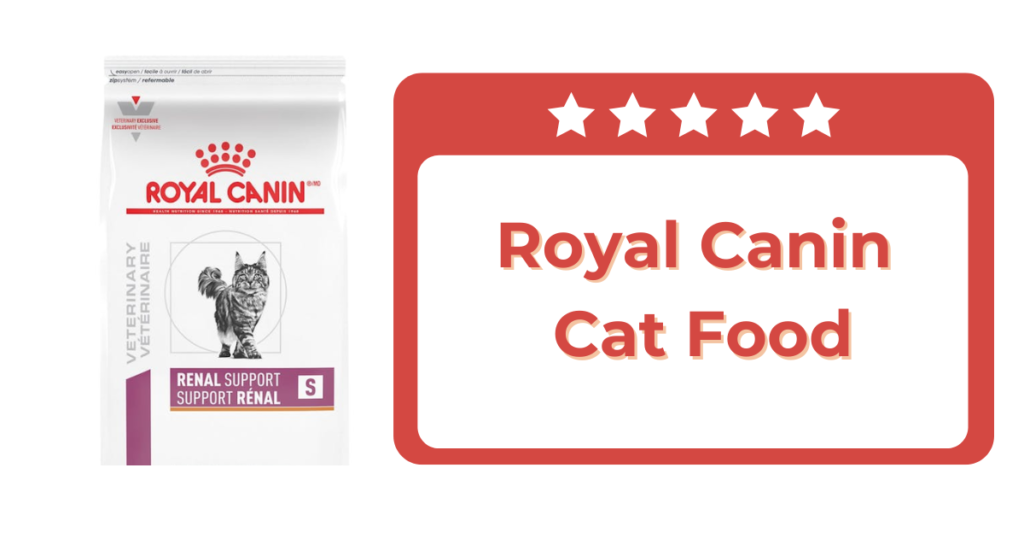
Brand Overview
Founded in 1968, Royal Canin has established itself as a leader in veterinary nutrition. The company’s philosophy emphasizes precision and personalization, offering breed-specific, size-specific, and condition-specific diets to meet the unique needs of cats.
When comparing Hills Prescription Cat Food vs Royal Canin, it’s clear that both brands are at the forefront of veterinary nutrition, but they cater to different needs in unique ways. Royal Canin’s approach is deeply rooted in understanding feline physiology and behavior, tailoring nutrition to specific health conditions. This makes them a top choice for cats with complex health issues, as their prescription diets are designed to combine effective nutrition with exceptional taste.
While Hills also provides specialized diets, Royal Canin often stands out for its ability to balance health benefits with palatability, which is crucial for finicky eaters. Both brands are highly recommended, but the choice between them often comes down to the individual needs of your cat.
Key Benefits of Royal Canin Prescription Diet:
- Highly Specialized Formulas: Royal Canin offers unique recipes tailored to address specific medical conditions, often with a range of options for each condition.
- Breed-Specific Options: The brand provides specialized diets for certain breeds, recognizing that different breeds have unique dietary requirements.
- Palatability Expertise: Known for its exceptional flavor profiles, Royal Canin is a favorite among cats with low appetites or picky eating habits.
- Advanced Research: Collaborates with veterinarians and nutritionists to ensure cutting-edge solutions for feline health.
Popular Royal Canin Prescription Diets:
- Royal Canin Urinary SO: Designed to dissolve and prevent urinary crystals while maintaining a healthy urinary pH. This diet also reduces the recurrence of urinary tract infections.
- Royal Canin Renal Support: A low-phosphorus diet ideal for cats with chronic kidney disease, offering multiple flavor options to appeal to finicky eaters. The formula includes antioxidants and EPA/DHA for kidney support.
- Royal Canin Gastrointestinal: Combines easily digestible ingredients with prebiotics to support gut health and manage digestive sensitivities. This formula also includes electrolytes to aid hydration.
- Royal Canin Satiety Support: Helps overweight cats lose weight safely by providing a feeling of fullness with fewer calories. It incorporates a high fiber content to control hunger.
Nutritional Focus
Royal Canin prioritizes digestibility and taste:
- Digestible Ingredients: Uses rice and corn to provide easy-to-digest carbohydrates.
- Prebiotics: Supports gut health and promotes beneficial bacteria.
- Balanced Protein and Fat Levels: Tailored to suit the specific needs of each health condition.
- Flavor Enhancers: Increases palatability to ensure cats adhere to their diets.
When comparing Hills Prescription Cat Food vs Royal Canin, both brands cater to specific health needs, but Royal Canin excels in palatability. Its flavor profiles are designed to appeal to even the pickiest eaters, making it a great choice for cats with reduced appetites due to illness. While Hills Prescription offers medically focused formulas, Royal Canin’s emphasis on taste can make feeding easier for finicky cats.
Hills vs. Royal Canin - A Detailed Comparison

Ingredients and Nutritional Content
Hills use fewer ingredients, focusing on reducing allergens and providing targeted nutrition. Royal Canin uses a wider range of ingredients to enhance flavor and texture, making it more palatable for selective eaters.
Effectiveness for Health Conditions
Both brands are highly effective, but the choice often depends on the cat’s individual needs. For example, Hills excels in kidney and metabolic care, while Royal Canin is renowned for its urinary health solutions.
Taste and Palatability
While both brands offer high-quality nutrition, Royal Canin has a reputation for better taste, making it preferable for cats with reduced appetites or picky eating habits.
Price and Value
Hills is generally more affordable, but Royal Canin’s higher price reflects its focus on palatability and specialized solutions.
Veterinary Recommendations and Clinical Results
Veterinarians frequently recommend both Hills Prescription Cat Food vs Royal Canin due to their effectiveness in addressing various feline health conditions. However, the choice of brand often depends on the specific medical issues being treated. Hills is often praised for its clinically proven results in managing kidney disease and weight control, while Royal Canin is a favorite for its focus on urinary health and palatability.
Hills Prescription Diets:
- Focus on conditions like kidney disease, digestive health, and weight management.
- Products such as Hills k/d (Kidney Care) have demonstrated effectiveness in easing the strain on kidneys and prolonging quality of life.
- Clinical studies back their claims, making them a trusted choice for long-term health solutions.
Royal Canin Veterinary Diets:
- Renowned for urinary health products like Royal Canin Urinary SO, which dissolves struvite stones and maintains a healthy urinary environment.
- Exceptional palatability makes it ideal for picky eaters or cats with reduced appetites.
- Combines therapeutic benefits with taste to improve adherence to dietary plans.
Veterinary Practices:
- Often suggest trialing both brands to see which works better for a specific health condition.
- Tailored recommendations ensure that the diet aligns with the cat’s unique needs and medical goals.
Environmental Sustainability and Ingredient Sourcing
When it comes to choosing the best food for your cat, many pet owners find themselves comparing Hills Prescription Cat Food vs Royal Canin. Both brands are highly respected in the pet food industry, known for their commitment to sustainable practices and eco-friendly initiatives.
Their focus on reducing environmental impact makes them responsible choices for conscious pet owners. While Hills Prescription Cat Food is recognized for its scientifically tailored formulas, Royal Canin also offers a wide range of specialized diets to meet specific health needs. Ultimately, both brands provide quality nutrition with a strong commitment to sustainability, ensuring your cat’s health while also caring for the planet.
Hills’ Sustainability Focus:
- Implement energy-efficient manufacturing processes to reduce carbon emissions.
- Packaging innovations prioritize recyclability to limit environmental waste.
- Ethical ingredient sourcing ensures premium quality while maintaining ecological balance.
Royal Canin’s Efforts Toward Sustainability:
- Actively invests in carbon-neutral initiatives and renewable energy solutions.
- Partners with sustainable fisheries to source omega-3 fatty acids responsibly.
- Collaborates with farmers for ethically grown ingredients, ensuring transparency in sourcing practices.
Impact on Pet Owners:
- Offers peace of mind for those who value environmental responsibility in their purchasing decisions.
- Supports the broader goal of reducing the environmental impact of the pet food industry.
Availability and Accessibility
When it comes to availability, both Hills and Royal Canin ensure that their products are easily accessible to pet owners worldwide. While Hills has a strong presence in veterinary clinics and pet stores, Royal Canin has a slightly broader global reach.
Hills Prescription Diet Accessibility:
- Widely available in veterinary clinics and specialized pet retailers.
- Provides online ordering options with subscription services for convenience.
- Competitive pricing makes it a popular option for long-term use.
Royal Canin’s Distribution Network:
- Global availability with an extensive network of suppliers in different regions.
- Easily found in remote areas, ensuring consistent supply for pet owners.
- Offers bulk purchase options and recurring delivery services online.
Convenience for Pet Owners:
- Both brands offer flexible purchasing options to meet diverse needs.
- Accessibility through multiple channels ensures uninterrupted dietary care for pets.
Health-Condition-Specific Diets: How Hills and Royal Canin Tackle Common Feline Health Issues
When it comes to specific health conditions, both Hills and Royal Canin offer diets designed to address the nuances of each issue, but their approaches can differ in terms of formulation and treatment.
Hills Prescription Diet: Focused on Renal and Metabolic Care
- Hills Prescription Diet has built a solid reputation in managing chronic kidney disease, obesity, and digestive issues. One standout feature of Hills is the high level of research invested in developing formulas for kidney care, such as the k/d This formula is tailored to reduce the workload on the kidneys, providing precise levels of phosphorus and protein, which is critical in slowing the progression of kidney disease.
- For cats with metabolic issues like obesity, Hills’ Metabolic formula promotes weight loss without compromising lean muscle mass. Its scientific formulation helps regulate appetite and increases fat burning while keeping energy levels high. Hills also offers effective options for digestive health, like i/d, which supports cats with gastrointestinal disorders, sensitive stomachs, and digestive sensitivities.
Royal Canin: Expertise in Urinary and Gastrointestinal Health
- Royal Canin excels in urinary health, with specialized formulas like Urinary SO designed for cats prone to urinary crystals and infections. This formula not only helps dissolve existing stones but also prevents future formations by maintaining an optimal urinary pH balance. Royal Canin’s precise formulation, including controlled mineral content, ensures the kidneys are not overburdened while addressing urinary tract health.
- In addition, Royal Canin’s Gastrointestinal line caters to cats with digestive sensitivities, with ingredients that promote gut health and overall well-being. Its inclusion of prebiotics enhances gut flora, while easily digestible carbohydrates help manage stomach sensitivities. This formula is ideal for cats suffering from chronic gastrointestinal issues like diarrhea or constipation.
Flavor Preferences and Special Diets for Picky Eaters
Cats are notoriously selective about their food, which can complicate feeding them therapeutic diets, especially when they are unwell. Both Hills and Royal Canin understand this challenge and have designed their formulas to appeal to a wide range of taste preferences.
Hills Prescription Diet: Flavorful Options for Selective Eaters
Although Hills focuses primarily on the health benefits of their prescription formulas, the brand has recognized the importance of palatability. They offer a variety of flavor options, including chicken, turkey, and salmon, for both dry and wet foods. However, some cats may still struggle with transitioning to prescription diets, especially if they are picky eaters or dealing with a medical condition that reduces their appetite. Hills recommends transitioning gradually, mixing their formulas with the cat’s existing food to prevent digestive upset.
Royal Canin: Mastering Palatability with Multiple Flavors
Royal Canin has a notable advantage in terms of palatability. Its formulas are often considered more appealing to picky eaters due to their meticulous attention to flavor and texture. The brand provides multiple flavor options for each prescription diet, such as Renal Support and Gastrointestinal, ensuring that even cats with reduced appetites or food sensitivities can enjoy their meals. For particularly finicky cats, Royal Canin’s ability to offer both pitch and chunks in gravy might make all the difference in ensuring the cat consistently consumes its meals.
Adaptability to Changing Health Needs
As cats age, their health needs evolve. Both Hills and Royal Canin offer products that can adapt to these changes, but they differ slightly in how they approach versatility in their prescription diets.
Hills Prescription Diet: Long-Term Solutions for Chronic Conditions
- Hills is often favored by veterinarians for cats that have chronic health conditions that require consistent management over time. Its prescription diets are designed with longevity in mind, addressing conditions such as renal failure, diabetes, and obesity through long-term feeding plans. Hills’ focus is on providing ongoing support for these health conditions, and its diet formulations evolve to cater to different stages of treatment.
- For example, Hills offers distinct formulas for cats in different stages of kidney disease or weight management, ensuring that the diet changes as the condition progresses. This adaptability is important for cat owners who are seeking a diet plan that can evolve alongside their cat’s health journey.
Royal Canin: Tailored to Specialized Health Phases
- Royal Canin’s approach also emphasizes the specific needs of cats at various life stages, but its focus is on precision for more niche health problems. For instance, Royal Canin offers distinct formulas for different types of urinary issues, including preventing bladder stones or managing urinary infections. These specialized diets cater to the precise needs of cats dealing with evolving health concerns, especially when they require a highly targeted solution.
- Royal Canin also focuses on breed-specific diets that provide tailored solutions based on a cat’s genetic predisposition. This can be a significant advantage for breeds that are prone to specific conditions like obesity or kidney problems, as it provides a custom solution for their unique needs.
Consumer Feedback and Real-Life Experiences
An important factor in evaluating any pet food is real-life feedback from other cat owners. Both Hills and Royal Canin receive high praise from owners of cats with specific health needs, but some notable differences emerge in consumer reviews.
Hills Prescription Diet: Proven Success in Long-Term Health Management
Many cat owners report significant improvements in their cats’ health when using Hills Prescription Diet, particularly for conditions like kidney disease, obesity, and gastrointestinal issues. Pet owners often note that their cats’ conditions improve or stabilize after transitioning to Hills’ therapeutic diets. While some cats take time to adjust to the taste or texture, many owners report that their cats eventually adapt, especially when gradually mixed with other foods.
Royal Canin: Exceptional for Picky Eaters and Urinary Health
- Royal Canin tends to receive positive feedback for its flavor options and effectiveness, particularly for cats with urinary tract issues. Owners often highlight the brand’s success in resolving urinary problems, especially when it comes to dissolving bladder stones and preventing future occurrences. The high palatability is also a significant advantage for cats that are picky eaters or struggling with appetite loss due to illness.
- However, some owners may find the cost of Royal Canin’s prescription diets to be higher than Hills, but they feel the investment is worth it due to the noticeable improvement in their cats’ health and their willingness to eat the food.
Conclusion
Choosing the right prescription cat food for your feline companion is a crucial decision, especially when managing health issues. Both Hills Prescription Diet and Royal Canin provide scientifically formulated diets designed to treat a range of health conditions and improve the overall quality of life for cats.
Hills stands out for its research-driven approach, particularly in kidney care and weight management, and is a reliable choice for long-term health management. Royal Canin, on the other hand, excels in urinary health solutions and is often preferred for its superior palatability, making it ideal for picky eaters or cats with reduced appetites.
FAQs
1. Can I switch between Hills Prescription Diet and Royal Canin for my cat?
Answer: Yes, you can switch between Hills and Royal Canin, but it’s important to consult with your veterinarian before doing so. Your vet can help determine the best transition plan to avoid upsetting your cat’s digestive system and ensure the new food aligns with your cat’s health needs.
2. Is prescription cat food safe for healthy cats?
Answer: No, prescription cat food is specifically formulated to manage health conditions and should only be used under veterinary supervision. Feeding it to healthy cats can lead to nutritional imbalances and potentially cause health issues.
3. How long does it take to see results from prescription cat food?
Answer: The timeframe for visible results depends on the specific health condition being treated. For chronic conditions like kidney disease or obesity, it may take several weeks or even months to see significant improvements. Your vet will monitor your cat’s progress and make adjustments to the diet as necessary.
4. Can I feed my cat both wet and dry prescription food?
Answer: Yes, both Hills and Royal Canin offer wet and dry food options. Mixing both can provide variety and support hydration, but it’s important to maintain the correct daily portion size as prescribed by your veterinarian.
5. Are there any side effects from prescription cat food?
Answer: Most cats tolerate prescription diets well, but some may experience mild digestive upset, especially when transitioning to a new food. If your cat shows signs of vomiting, diarrhea, or loss of appetite, consult your veterinarian for guidance.

